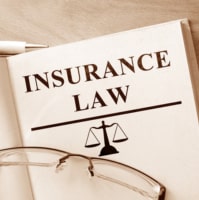and
All too often, insurance companies and defense counsel are presented with pre-litigation, time-limit policy demands that include a delineation of conditions and terms which if not accepted and strictly adhered to will, as threatened by the claimant’s counsel, open up the policy and expose the carrier to extra-contractual damages. One recent such demand made to an insurance company in a case handled by BG+W included the following conditions:
- The offer to settle must be accepted in writing and received by claimant’s law firm within 14 days from the date of this letter;
- No extensions will be granted unless there are exigent circumstances described in writing;
- Any communication that is not an unequivocal acceptance or a reason for an extension will be deemed as a rejection;
- Acceptance must include a sworn declaration from the insured that includes that the insured was not in the scope of employment at the time of the accident and that there is no other insurance policy that will provide coverage for the loss; and
- Strict adherence to all of the terms and conditions of this offer is required for its acceptance and the creation of a binding settlement agreement.
The unreasonableness of this demand, particularly the short time window, is manifest. While some claimant-chosen medical records were provided with the demand, other information such as prior medical conditions and loss of earnings documentation was not. The demand presents a minefield of potentialities for the insurance company to inadvertently trigger the intended consequence of noncompliance and, thus, the threat of opening up the policy and exposing the insurance company to extra-contractual damages. Demands of this nature are win-win situations for claimants’ counsel – either the insurance company will pay the policy in an effort to avoid the consequences or respond with something other than an unequivocal acceptance, thereby risking opening up the policy. This puts two of the insurance company’s duties in conflict, (1) the duty to fairly evaluate liability claims on their individual merits, and (2) the duty to protect its insured from potential extra-contractual exposure.
Perhaps recognizing the unfairness and prejudice hoisted on insurance companies by these conditional time-sensitive demands, the Legislature, on February 16, 2022, introduced Senate Bill 1155. The Bill’s stated purpose was to level the playing field between claimants and insurance companies in evaluating claims by removing the imminent peril Sword of Damocles from over the insurance company’s head when faced with purposely drafted time limit policy demands that are unreasonable in both time and scope:
“It is declared to be the public policy of the State of California that prompt settlements of civil actions and claims are encouraged as beneficial to claimants, policyholders, and insurers. Tactics that frustrate settlement, create distrust among parties and escalate disputes are disfavored, particularly settlement demands where the time provided for acceptance would deprive an insurer of an adequate opportunity to investigate and evaluate its insured’s exposure and that are actually designed to “open” insurance policies beyond their stated limits. Both policyholders and their insurers doing business in this state are entitled to the opportunity to timely and fairly investigate claims presented without the risk of creating additional exposure.”
Senate Bill 1155, which as of January 1, 2023, will be codified at California Code of Civil Procedure §§ 999-999.5, provides a framework for the handling of time limit policy demands. The Bill defines “time-limited” demand as “an offer prior to the filing of the complaint or demand for arbitration to settle any cause of action or a claim for personal injury, property damage, bodily injury, or wrongful death made by or on behalf of a claimant to a tortfeasor with a liability insurance policy for purposes of settling the claim against the tortfeasor within the insurer’s limit of liability insurance, which by its terms must be accepted within a specified period of time.”
The protections the new statute will provide to insurance companies evaluating a time-limited demand include:
- The time period within which the demand must be accepted shall be not fewer than 30 days from the date of transmission of the demand, or 33 days depending on the mode of transmission; a clear and unequivocal offer to settle all claims within policy limits, including the satisfaction of all liens; an offer for a complete release from the claimant for the liability insurer’s insureds from all present and future liability for the occurrence; the date and location of the loss; the claim number, if known; a description of all known injuries sustained by the claimant; and reasonable proof, which may include, if applicable, medical records or bills, sufficient to support the claim.
- Upon receipt of a time-limited written demand, the insurance company may either accept or reject the demand in writing or seek clarification or additional information or a request for an extension due to the need for further information or investigation. This request “shall not, in and of itself, be deemed a counteroffer or rejection of the demand.”
- If an insurance company does not accept the time-limited demand, it is required to notify the claimant of its decision and the basis of its decision prior to the expiration of the time-limited demand.
- In any lawsuit filed by a claimant, or by a claimant as an assignee of the tortfeasor, a time-limited demand that does not substantially comply with the terms of the statute shall not be considered to be a reasonable offer to settle the claims against the tortfeasor for an amount within the insurance policy limits for purposes of any lawsuit alleging extracontractual damages against the tortfeasor’s liability insurer.
To alleviate the primary concern of insurance companies of the hair-trigger consequences of not strictly complying with the demand’s terms – thereby potentially opening up the policy – the new law provides a level playing field on which the insurance company may fairly evaluate the demand on its merits. The fear of lawsuits filed by a claimant, or by a claimant as an assignee of the insured (for a bad faith claim), is likewise quelled under the statute by shifting the strict compliance burden onto the claimant’s attorney. A time-limited demand that does not “strictly comply with the terms” of the statute shall not be considered to be a “reasonable offer” to settle the claims against the insured for an amount within the insurance policy limits and shall not be admissible in any lawsuit alleging extra-contractual damages against the insurance company.

Peter H. Crossin, Esq. is an experienced attorney in good standing with vast experience on both sides of the Plaintiff and Defense bars. He is admitted to all courts of the State of California and the U.S. District Court for the Central District of California. He has practiced extensively in the Superior Courts of the State and in the California Courts of Appeal. He has authored and argued over 20 appeals and writs and has exceptional writing and team leadership skills.
Mr. Crossin has held leadership positions on the Plaintiffs’ Steering Committees for the California In Re Intraocular Lens and Latex Glove coordinated litigations and defendants in the In Re Welding Rod coordinated litigation. He has prosecuted and defended a myriad of cases involving toxic tort, catastrophic injury, warranty claims, product and premises liability (with a particular emphasis on premises third-party criminal act litigation), construction defect, and contract disputes.


